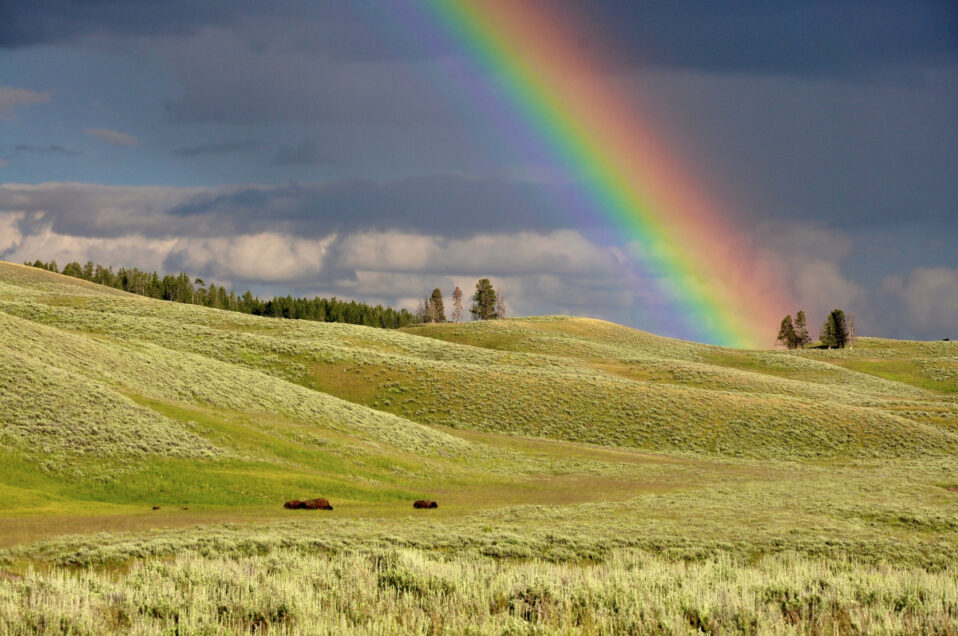Every day there is news about the effects of climate change…severe droughts, flooding, fires, catastrophic storms, etc. Our planet is in serious trouble and the behavior of human beings is the primary cause. Pope Francis, in his encyclical Laudato Si’, challenges us to adopt a more Earth-friendly sustainable lifestyle. Moving towards a more plant-based diet is often cited as a crucial means of addressing climate change. But why? Below are some of the reasons a plant-based diet can both address climate change and provide multiple health benefits.
Animal agriculture is currently the single largest contributor to greenhouse gas emissions, making it one of the largest drivers of climate change. Key to this contribution is the release of methane gas from livestock production: Since 2007, the concentration of methane in the atmosphere has risen significantly, faster than any other greenhouse gas. According to National Geographic, “The 20-year global warming potential of methane is 84. That is, over a 20-year period it traps 84 times more heat per mass unit than CO2.” A leading cause of this increase in methane is the billions of livestock grazing in pastures and confined in feedlots around the world. Decreasing the consumption of meat, even by one or two days per week, can make a difference.
Livestock currently graze on more than one-third of Earth’s ice-free land surface which was once forest or grasslands that had captured and stored carbon dioxide. In the Amazon rainforest, clearing land for grazing cattle accounts for 70 percent of recent deforestation, with additional forest being cleared for growing soy to feed livestock. Restoring these lands to native ecosystems or forests has the potential to sequester quantities of carbon dioxide that could significantly offset decades of global fossil fuel emissions.
Animal agriculture is a major cause of water pollution, contaminating drinking water, causing toxic algae outbreaks in local waterways, and killing fish. Slaughterhouses that process and package poultry, beef, pork, and other meats dump millions of pounds of harmful substances directly into our nation’s rivers and streams.
Humans consume more animals today than ever before. Worldwide, some 80 billion animals are raised and slaughtered for food each year; in the United States about 10 billion are slaughtered, approximately 1 million per hour. According to one analysis of data from the U.S. Department of Agriculture, the average U.S. citizen consumes about 21,000 land animals in his or her lifetime.
Most animals raised for human consumption in the United States are raised on factory farms where they are subjected to small spaces and horrendous conditions. The majority of these factory farms are currently exempt from federal animal welfare laws.
A plant-based diet also has personal health benefits. The overconsumption of meat in our diets increases the risk of obesity, diabetes, cancer, cardiovascular disease and other chronic diseases. As early as 2016 a University of Oxford study stated that “a global switch to diets that rely less on meat and more on fruit and vegetables could save up to 8 million lives by 2050, reduce greenhouse gas emissions by two-thirds, and lead to healthcare-related savings. It could also avoid climate-related damages of $1.5 trillion (US)”.
Small changes can make a huge difference. For instance, the World Resources Institute tells us that “Americans eat approximately 10 billion burgers each year. Replacing 30 percent of the beef in those burgers with mushrooms would:
- Reduce agricultural production-related greenhouse gas emissions by 10.5 million tons of carbon dioxide equivalent (CO2e) per year, equivalent to taking 2.3 million cars (and their annual tailpipe emissions) off the road.
- Reduce irrigation water demand by 83 billion gallons per year, an amount equal to 2.6 million Americans’ annual home water use; and
- Reduce global agricultural land demand by more than 14,000 square miles, an area larger than the state of Maryland.”
Reflect on your daily diet and, if it is high in meat consumption, think about adding one or more meatless days to your week as your contribution to a healthier planet. Pope Francis reminds us that there is a connection between the abundance of food available in the developed countries and the hunger which plagues those in the less developed countries. He noted that “The future is not up somewhere in the clouds, but is rather built by promoting and accompanying processes of greater humanization. We can dream of a future without hunger, but this is only reasonable when we engage in tangible processes, vital relations, effective plans, and real commitments.” What commitment will you make today?
Resources:
- McGann, Mary, RSCJ in an article in America October 2022.
- Oxford University at https://www.ox.ac.uk/news/2016-03-22-veggie-based-diets-could-save-8-million-lives-2050-and-cut-global-warming
- Planet Earth Weekly – https://planetearth5.com/2019/09/22/the-greenhouse-effect-the-dangers-of-methane/
World Resources Institute at https://twitter.com/WorldResources/status/1021787231672049664

